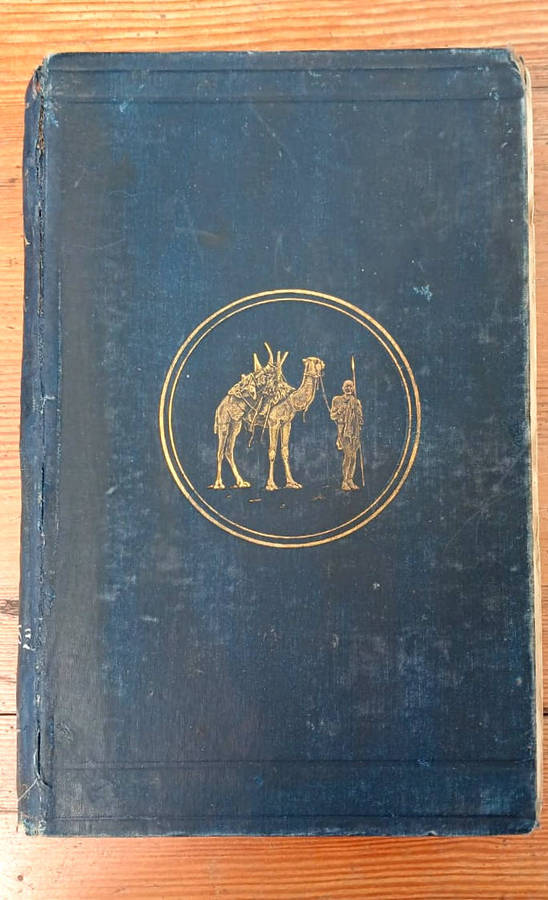



In the Grip of the Nyika: Further Adventures in British East Africa (1910)
Check my rate
| Main centres: | 1-3 business days |
| Regional areas: | 3-4 business days |
| Remote areas: | 3-5 business days |




| Main centres: | 1-3 business days |
| Regional areas: | 3-4 business days |
| Remote areas: | 3-5 business days |
First Edition, Macmillan, 1909, hardcover, illustrated, with map, 312 pages, ex-central reference library book (never lent out), otherwise ncondition: good.
J. H. Patterson, was a British soldier, hunter, author and Christian Zionist, best known for his book The Man-Eaters of Tsavo (1907), which details his experiences while building a railway bridge over the Tsavo river in Kenya in 189899. In this follow up book, he "endeavoured to give a plain account of the trials and adventures which befell me on two recent expeditions through the nyika, or wilderness, in British East Africa. On the first trip there were three of us, and all returned safely to civilisation, although dangers were not wholly absent. On the second and longer expedition there were also three Europeans, but, alas! only two got back, the nyika having claimed the third; nor was the god of the wilds content with this sacrifice, for, in addition, he claimed several of my native followers. He laid his deadly grip on me as well, but I was wrested from him by the care and attention of my companion, to whose skilful nursing I feel I owe my life.
In relating the events of the journey I have considered it incumbent on me, not only to tell the exciting adventures among the wild men and wild beasts of the regions traversed, but also to give some of the more tiresome detail connected with a safari in the nyika, as my object all through has been to describe everything exactly as it actually happened."
Lieutenant-Colonel John Henry Patterson, DSO, known as J.H. Patterson, was an Anglo-Irish soldier, hunter, author and Zionist, best known for his book The Man-Eaters of Tsavo (1907), which details his experiences while building a railway bridge over the Tsavo river in Kenya in 1898-99.
Although he was himself a Protestant, he became a major figure in Zionism as the commander of both the Zion Mule Corps and of the 38th Battalion of the Royal Fusiliers (aka Jewish Legion of the British Army) in World War One. He ultimately achieved the rank of Lt. Colonel, and retired from the British Army in 1920. Patterson was a strong supporter of the establishment of a separate Jewish state in the Middle East, which was realized with the statehood of Israel on May 14, 1948, less than a year after his death.